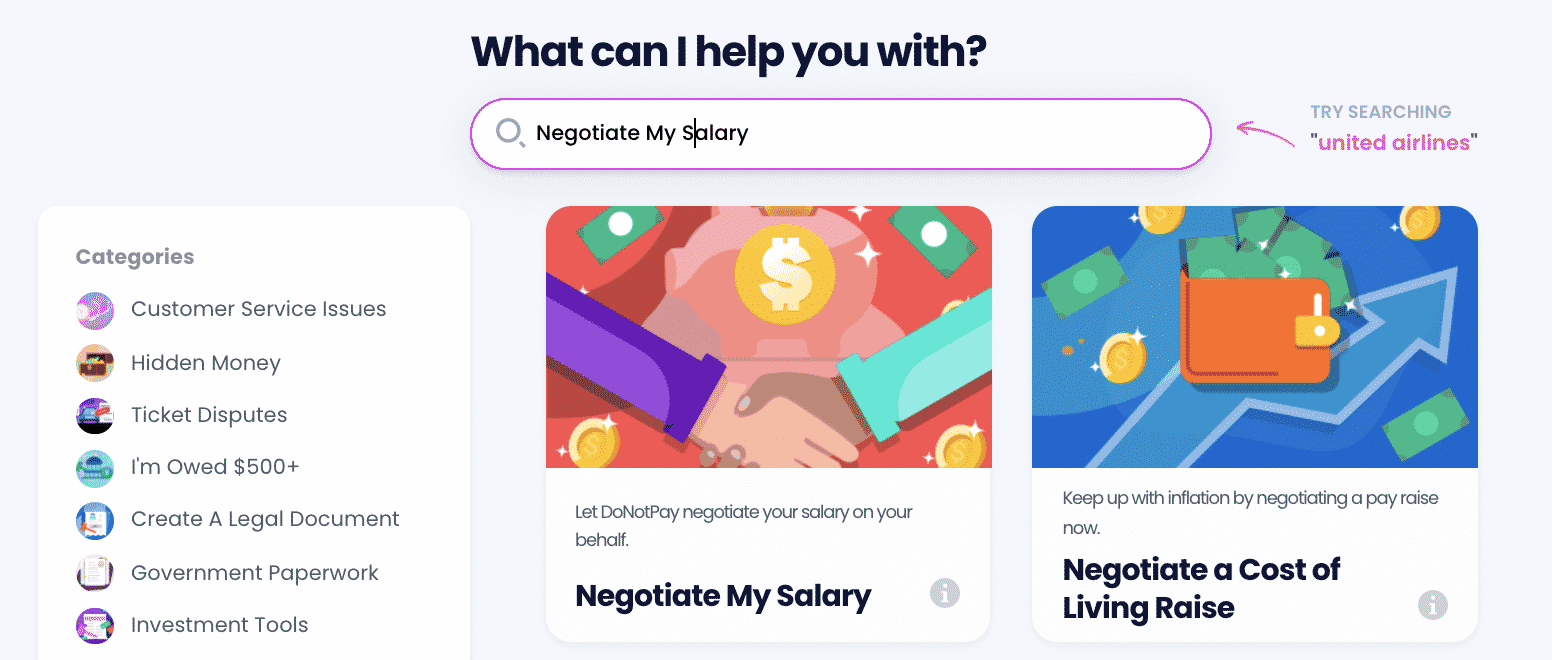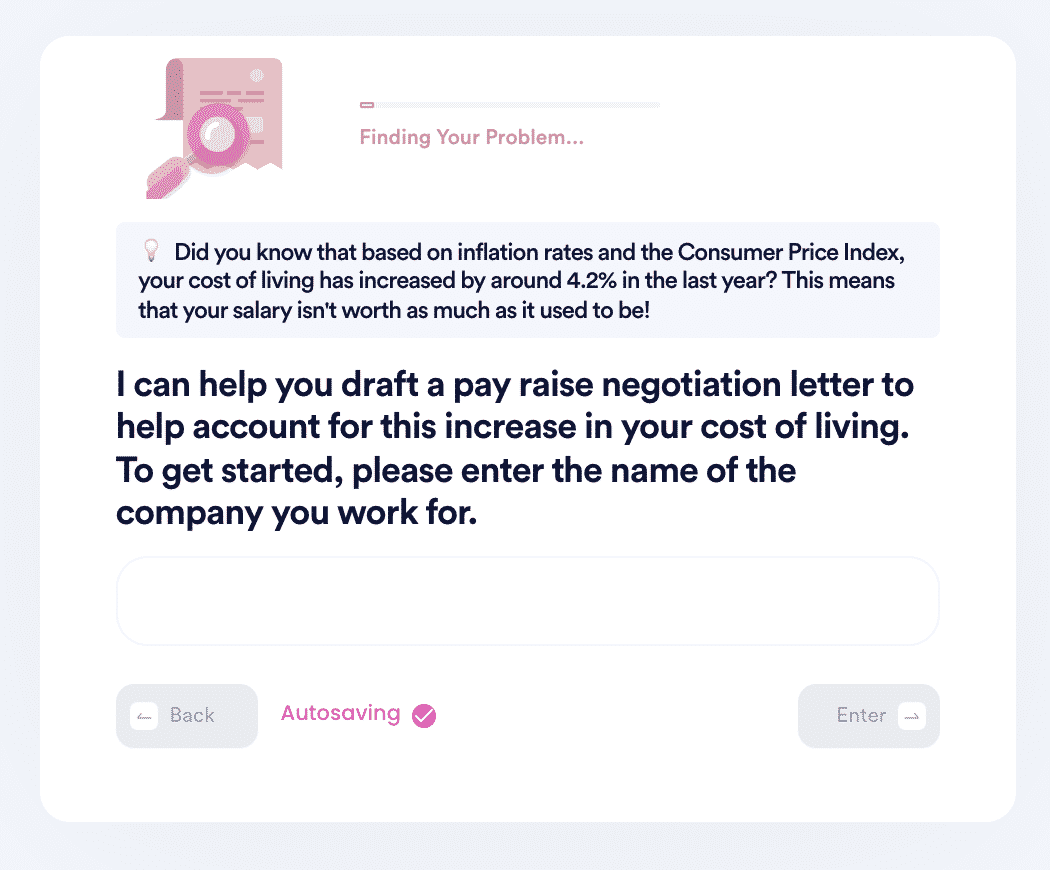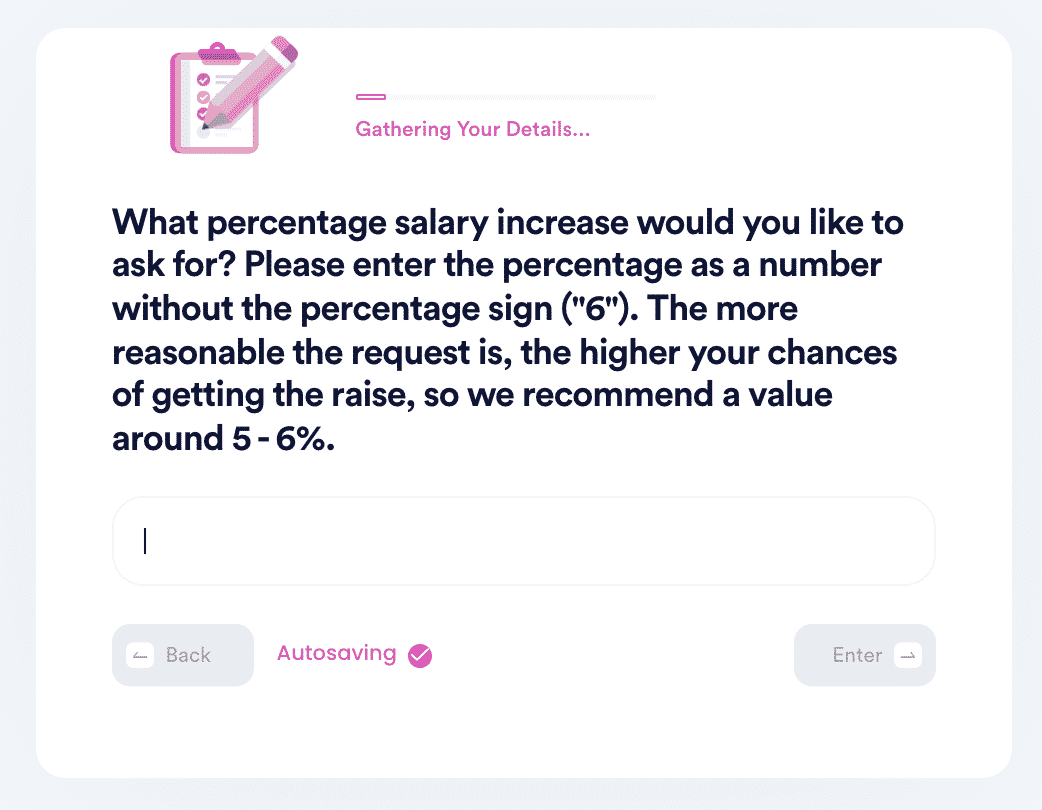How to Ask For a Raise When You Are Underpaid
If you work hard every day at work but still don't make the kind of money that you believe you should be making, you could be considering making a career transition. Finding another job is tempting when you want to make more money - but there's another way to get the compensation that you deserve at work. Asking for a raise can be intimidating, but if you go about it the right way, you could see financial benefits.
If you aren't sure , this guide can help you. DoNotPay can help walk you through examples of why you should get a raise at your job and reveal the strategy to asking for that raise. If you have ever wondered how to ask for a raise when you are underpaid, read on.
How Often Should You Get a Raise?
There's no hard and fast answer regarding how often you should get a raise at work. Depending on your profession, your job duties, and the details of your company's pay structure, you could enjoy annual raises or bi-annual raises - but if you have been at your job for a while and haven't received a salary increase, you might want to start doing some research. Here are some things to keep in mind regarding how often you should be getting a raise at work:
- If you haven't received a raise in six months or more, you might be eligible for a salary increase.
- If you have managed a significant achievement at work, such as completing a big project or landing a big client.
- If you have been in your position for a year or more and haven't gotten a raise.
Reasons You Should Get a Raise
Have you been at your job for a while? Have you not enjoyed regular raises even though you've performed your duties as a dutiful employee? Those are just several of the reasons why you should ask for a raise. Here are some other factors that could indicate you should receive a raise:
- Inflation
- Company growth
- Newer team members are receiving salary increases while you haven't
and have some evidence to show HR, you should definitely consider asking for a salary increase. Notably, if you have received rave reviews from your manager, as well as impressive performance reviews, and still haven't received a raise - you could be underpaid at work.
How to Ask For a Raise on Your Own
, but you have the power to speak up on your own behalf. If you want to ask for a salary increase on your own, here's what you should do:
| Prepare documentation showing your manager why you deserve a raise. | This can include data about ways that you have excelled at your job since you started. You can also choose to include information about why you believe you are underpaid, such as the average salary range for your position - but be wary of putting any information about your co-workers' salaries for privacy reasons. |
| Schedule a meeting with your manager or with an HR representative. | If you work in an office, you can do the meeting face-to-face, but if you work remotely, you might have to look at scheduling this meeting over video chat or even email. |
| Practice prior to your meeting by speaking in front of a mirror or even to a good friend. | Work on your confidence and delivery, making sure to emphasize why you believe that you deserve a raise so that you can continue performing good work at the company. |
If you want some help, DoNotPay is the answer. DoNotPay is the easy way to go about planning your salary negotiation process, providing you support and resources.
Use DoNotPay to Get Salary Negotiation Support
How to negotiate your salary using DoNotPay in just four easy steps.
All you have to do is
- Search for 'Negotiate My Salary' on DoNotPay.

- Fill in your company's name and the industry you're in for us to compile wage statistics in your field.

- Write your achievements and qualifications.

- Enter your preferred base salary.

And that's all there is to it. Once the information is finalized, DoNotPay will generate an official salary negotiation letter that you can then email or present to your employer, saving you time and stress.
What Else Can DoNotPay Help With?
DoNotPay is the best resource for planning your salary negotiations. Here are some other ways DoNotPay can help you:
- How to negotiate salary over the phone
- How to negotiate salary by email


